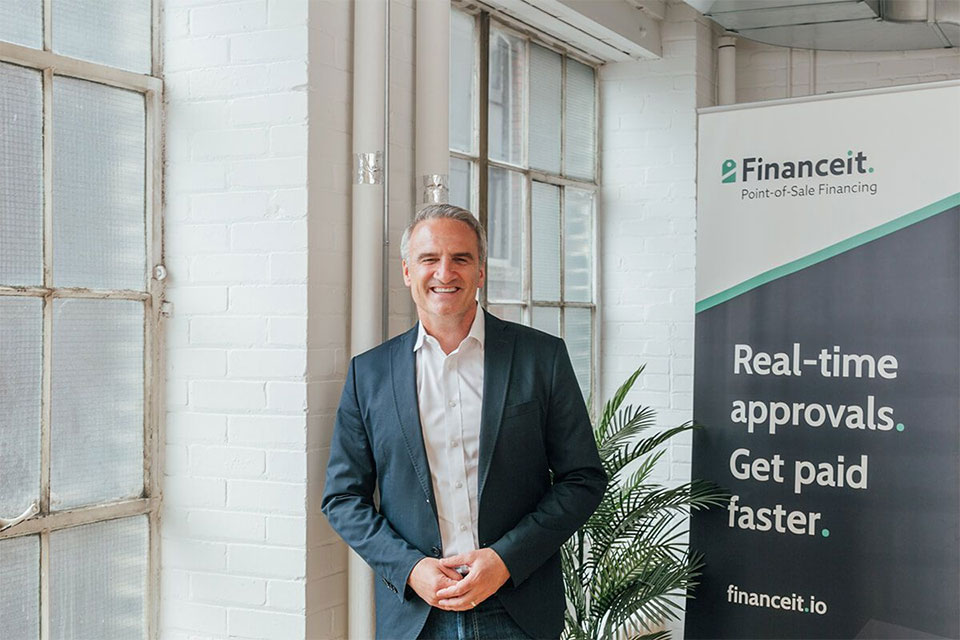The Role of Empathetic Communication in Resilient Leadership – A Conversation with Michael Garrity, CEO at FinanceIt

In this period of significant uncertainty and stress, effectively leading a company through crises is imperative. Executives must foster cultural resilience as all signals hint at even more upheaval to come.
While the disruption wrought by COVID-19 may be an easy primary target to blame for the Great Resignation, a giant red flag has been waving for quite some time. Global employee engagement scores have been trending downwards for many years. It may be more accurate to say that the global pandemic was the final straw. . To survive and thrive in the future requires positive and resilient leadership. Moving forward, this means that businesses cannot settle for an ill-defined, lackluster company culture.
This leaves a burning question. How can leaders build this type of culture while continuing to hit their aggressive growth targets? To shed light on the answer, I spoke with Michael Garrity, CEO of FinanceIt, which was recently recognized as one of Canada’s Most Admired Corporate Cultures of 2021. What’s more, he was a finalist for the EY Entrepreneur of the Year, so he intimately understands how to lead a high growth organization while preserving a positive culture.
The key to resilient leadership: Empathetic communication
Although Garrity acknowledges there are specific leadership qualities that are essential for resilient leadership, they also were important pre-COVID. However, the pandemic “amplified their significance.”
There is one core aspect that makes this such a complex time to lead. “I think the most challenging part,” Michael said, “really comes from the uncertainty of it all. We are in unprecedented times and there isn’t a reliable or relevant proxy for what we’re going through here. Add to this that the unique life circumstances of each of your employees will affect them in unimaginable ways.”
While many CEOs may feel they need to motivate their organizations by doubling down on their charisma or by being even more energetic and passionate, according to Garrity, this is not an effective response. He cautions, “Although there has never been a more important time to be a good communicator, being a good communicator is not about being charismatic. Employees don’t need someone to stand on a pulpit and inspire them through their energy or eloquence. “It’s about being open and honest, and it’s especially about having empathy for what people are going through.”
An important question comes next. If empathetic communication is so important, how can leaders do this effectively? Garrity shares a foundational insight.
“Empathy starts with a realization that we’re all in this together and that I understand the position that you’re in right now. When you can show people you care and truly get where they’re coming from, they will open up about what they need from you.”
Garrity warns against using your own experience and needs to drive empathetic connection because it will likely have the opposite effect. “We are fortunate enough to have a relatively large house so that we can segment off into different parts of it when we are working from home. However, other people live in a 500 square foot condo with a spouse that is sharing that space with them and maybe even children. You can’t take your situation and use it to imagine someone else’s. That can lead to more frustration and disconnection than anything else.”
Not surprisingly, leading with questions is a great way to avoid this trap. However, it’s not as simple as asking “How are you doing?” or “What do you need?” because people may be initially reluctant to share everything that they are facing right now. Leaders must exhibit patience and probe a little deeper. “If people provide a standard ‘fine,’ ask again, ‘No really, how are you doing?”
Taking this extra step maximizes the chances your employees will be forthcoming with their most personal challenges. While this is invaluable information, as it leads to deeper levels of understanding, there is one more step. The best leaders use that information to improve the lives of their employees.
“When people start sharing their challenges, you’re not done yet. Then ask “What can we do as an organization to make that easier for you? For example, can I ship you the standup desk from your office where your back is suffering from sitting in that uncomfortable chair every day at home. Those types of conversations and what’s going to be a difference maker for your employees. I hear about this all the time and it’s one of the things I am most proud of as CEO.”
Conclusion
Executives may worry that leading with empathy may interfere with their ability to drive engagement and performance within their organizations as it is too soft for the realities of the world we live in today. However, scientific and anecdotal evidence support the idea that empathy is not a soft skill. It is a prerequisite to exceptional leadership and performance. By showing people you care and taking steps to address their concerns, you drive your organization forward in a way that protects it from the challenges of today and tomorrow.
Have you read?
Best Business Schools In The World For 2022.
Best Fashion Schools In The World For 2022.
Best Hospitality And Hotel Management Schools In The World For 2022.
Best Medical Schools In The World For 2022.
Bring the best of the CEOWORLD magazine's global journalism to audiences in the United States and around the world. - Add CEOWORLD magazine to your Google News feed.
Follow CEOWORLD magazine headlines on: Google News, LinkedIn, Twitter, and Facebook.
Copyright 2025 The CEOWORLD magazine. All rights reserved. This material (and any extract from it) must not be copied, redistributed or placed on any website, without CEOWORLD magazine' prior written consent. For media queries, please contact: info@ceoworld.biz








